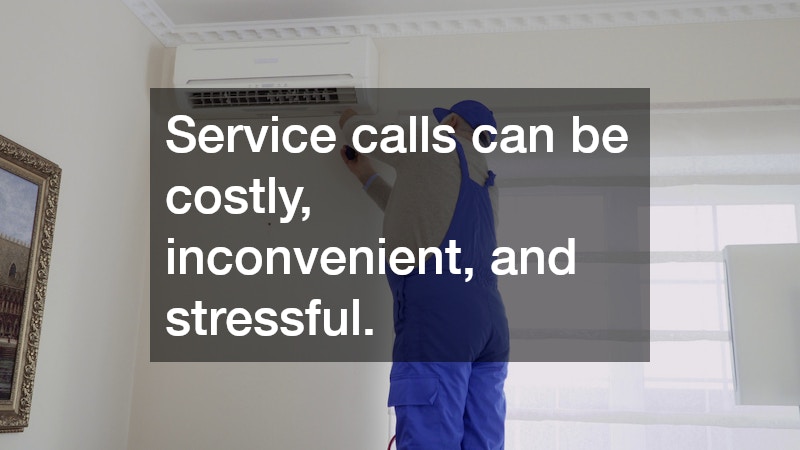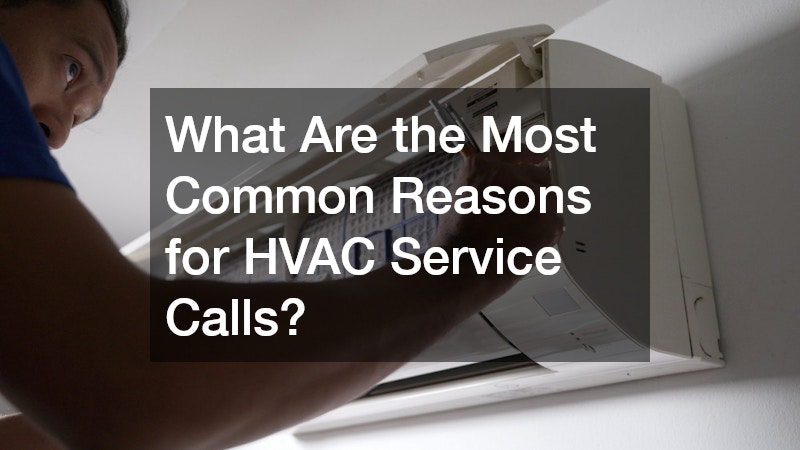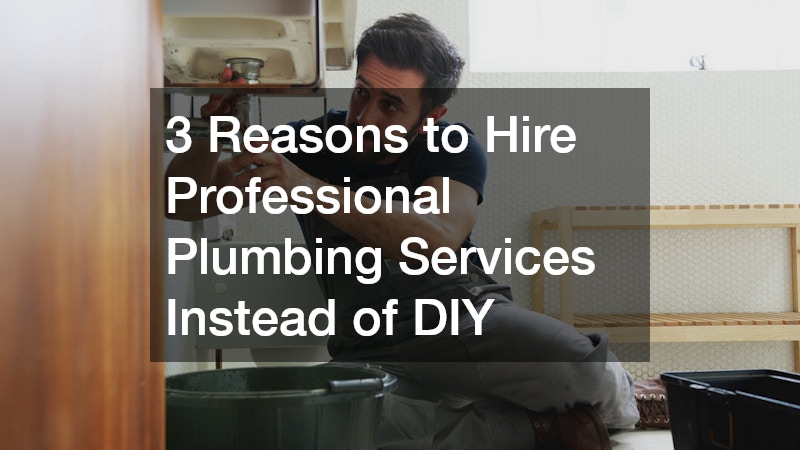HVAC services are integral to maintaining a comfortable and efficient living environment. The term HVAC stands for Heating, Ventilation, and Air Conditioning, and it encompasses a wide range of services aimed at making indoor environments healthier and more comfortable. Whether it’s the chill of winter requiring heating aid or the sweltering summer necessitating air conditioning, HVAC systems are crucial year-round. However, just like any complex system, HVAC units sometimes break down or require maintenance, prompting service calls.
Understanding the most common reasons for these calls can help homeowners anticipate issues and possibly prevent them through regular maintenance.
Service calls can be costly, inconvenient, and stressful. However, many of the issues that prompt these calls are preventable. Homeowners can often mitigate potential problems with regular maintenance and attentive use. HVAC services often become vital during extreme weather conditions, but regular check-ups scheduled ahead of time can prevent the need for emergency interventions. By being aware of the most frequent reasons that lead to service calls, property owners can take proactive measures. This not only enhances comfort but also extends the lifespan of the HVAC system itself.
In this article, we will delve into the most common reasons for HVAC service calls. We will also explore steps homeowners can take to minimize the need for these potentially costly interventions. Regular assessment and maintenance, as we shall see, play a significant role in eliminating many HVAC issues. Not only does this save money, but it also contributes to more efficient energy use. As we proceed, let’s explore each of these common issues in detail.
Refrigerant Leaks
One of the most common reasons for HVAC service calls is refrigerant leaks. The refrigerant is crucial for the cooling process as it absorbs heat from the indoor air and releases it outside. When there is a leak, the efficiency of the air conditioning unit drops, leading to insufficient cooling. Moreover, leaking refrigerant poses environmental hazards, as many types are ozone-depleting substances. Homeowners often notice warmer than usual air blowing from the vents or longer cooling cycles, prompting calls for professional HVAC services.
Detecting a refrigerant leak is not always straightforward, as it often occurs in less visible parts of the system. Trained professionals use specific tools and techniques to identify leaks and assess the system’s pressure levels. Repairing leaks usually involves finding the source, sealing it, and replenishing the refrigerant to the required level. Homeowners are urged to address refrigerant issues promptly, as ignoring them can lead to increased energy bills and further system damage. Regular maintenance checks by HVAC services can prevent many leak-related problems before they escalate.
Prevention of refrigerant leaks relies heavily on regular inspection and maintenance. Small leaks, if caught early, can be addressed with minimal cost and effort. Since refrigerant systems are closed loops, any drop in pressure typically indicates a leak. Homeowners should avoid DIY fixes as improper handling of refrigerants can be dangerous both to humans and the environment. Trusting professional HVAC services ensures that leaks are properly managed, restoring system functionality and maintaining eco-friendly practices.
Thermostat Malfunctions
Another prevalent cause for service calls is thermostat malfunctions. The thermostat serves as the control center for the HVAC system, allowing users to set desired temperatures. When the thermostat fails to work correctly, it can lead to irregular temperature regulation and increased energy consumption. Common issues include unresponsive screens, incorrect readings, and connectivity problems for smart thermostats. Homeowners often contact HVAC services when they notice that their heating or cooling is not achieving the set temperatures.
Diagnosing thermostat problems can incur a range of solutions, from battery changes in simple models to more complex calibrations in advanced systems. Sometimes the issue lies with improper installation, which can cause the device to misread temperatures because of poor placement. Professionals in HVAC services examine whether the thermostat’s position is optimizing its functionality and make necessary adjustments. Replacement of faulty thermostats sometimes becomes essential, especially when it frequently causes disruptions. Regular updates, particularly for smart thermostats that operate using Wi-Fi, can prevent many function-related issues.
Homeowners can mitigate thermostat-related issues by ensuring timely battery replacements and software updates. Positioning the thermostat away from direct sunlight or drafts can also prevent inaccuracies in temperature readings. While quick fixes might resolve some problems, consulting with HVAC services ensures that underlying issues are thoroughly addressed. As energy efficiency becomes a growing concern, professional guidance in choosing and maintaining a thermostat plays a crucial role. Consequently, thermal comfort and energy costs both benefit from attentive thermostat management.
Dirty or Clogged Filters
Clogged air filters are a frequent yet easily preventable cause of HVAC service calls. Air filters trap dust, pollen, and other airborne particles to keep the indoor air clean. However, over time these filters can become saturated, reducing airflow and forcing the HVAC system to work harder. This inefficiency not only reduces comfort but also increases energy bills and risks overheating the system. As a result, replacing air filters regularly is a simple yet vital part of HVAC maintenance.
Many homeowners underestimate the impact of a clogged filter on their HVAC system’s performance. While it might seem like a minor issue, it can lead to significant complications if left unaddressed. Blocked filters can cause components such as coils and fans to strain under increased pressure, often leading to breakdowns. HVAC services professionals consistently stress the importance of checking and replacing filters every one to three months, depending on usage and environmental conditions. Proper filter maintenance maintains system efficiency and indoor air quality.
Regularly replacing air filters is an easy DIY maintenance task that saves time and money in the long run. Homeowners can consult their system’s manual or contact HVAC services for guidance on the correct filter type and replacement schedule. For homes with occupants that have allergies or pets, more frequent filter changes may be advisable. By prioritizing clean air filters, homeowners not only enhance system performance but also promote a healthier indoor environment. Ultimately, this simple habit is foundational in preventing unnecessary HVAC service calls.
Understanding the common reasons for HVAC service calls and taking preventative measures can save homeowners considerable time and money. Issues such as refrigerant leaks, thermostat malfunctions, and dirty filters are prevalent but manageable with regular attention. Scheduling routine maintenance checks with HVAC services is a proactive approach to ensure the system’s longevity and efficiency. Preventative care not only reduces the likelihood of emergency service calls but also supports energy optimization and cost-effectiveness. As each HVAC system is unique, personalized maintenance plans can address specific needs and conditions.
Homeowners should embrace the notion that timely intervention and preventive measures are central to avoiding HVAC headaches. Professional consultations and maintenance checks substantially increase a system’s reliability. Moreover, understanding signs of dysfunctionality allows homeowners to address problems before they become critical. The investment in regular maintenance yields returns not just in comfort and reliability but also in enhanced efficiency. This all culminates in a system that operates effectively throughout varying weather conditions.
Emphasizing regular maintenance and professional insight ensures that HVAC systems can provide optimal performance throughout their operational lives. As detailed in this article, many service calls are preventable with simple, consistent actions. The goal is to avoid stressful and costly emergencies through informed upkeep. By leveraging the expertise of HVAC services, homeowners can align maintenance practices with their specific environmental needs. This approach translates to comfort, savings, and peace of mind—the hallmark of smart homeownership.




